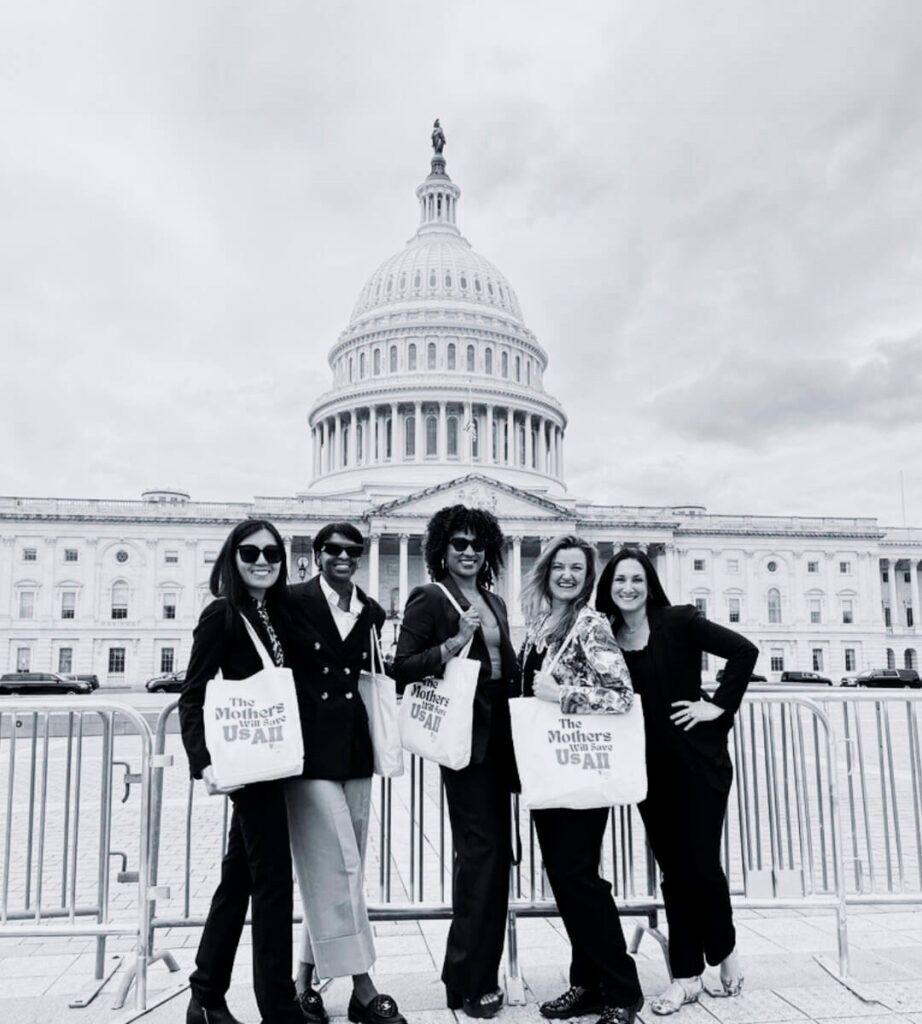
Daily Show for May 20, 2025
May 21, 2025
ADF adviser uses corporate activism to advance agenda
May 21, 2025It’s not just a lack of childcare. It’s a lack of care—period.
If a woman dies as a result of her pregnancy, it is over 50 percent likely to occur postpartum. Yet, insurance companies have decided that postpartum, despite bearing equal risk to the mother, intensive care ceases to be necessary. “I get 12 visits when a mom is pregnant,” Dr. Rachel Blake, an ob-gyn, explained. “I get one visit postpartum. That’s what insurance covers.”
Women find themselves at their most vulnerable and in need of care after giving birth. More than a third of women experience lasting health problems long after birth. Beyond the risk of death, postpartumwomen face a number of critical risks: excessive bleeding, high blood pressure complications, perinatal anxiety and mood disorders—just to name a few. “Many postpartum conditions cause considerable suffering in women’s daily life long after birth, both emotionally and physically,” said Dr. Pascale Allotey, director of Sexual and Reproductive Health and Research at the WHO, “and yet they are largely underappreciated, underrecognized and underreported.”
The way the U.S. understands, or refuses to understand, maternal health makes even asking for care a baffling proposition. Dawn Huckelbridge, founder of Paid Leave for All, recounted the moment she truly became “fired up and fed up” after giving birth to her first child. Huckelbridge was prepared in every sense: She had a supportive partner, health insurance and parents who could help her out. Upon delivering her baby, what she recalls as a traumatic experience for her mind and body, she was given even more resources for the baby: diapers, blankets, instructive care literature.
And when she asked her doctor, “Well, what about me? What do I have to do to take care of my body?” he replied, “Things just have a way of healing.” That was the official prescription for a mother who had been carrying a baby for 40 weeks and had only given birth a moment ago.
Earlier this month, I attended a “power breakfast” hosted by the Chamber of Mothers, an organization and movement driving national support for mothers. I expected the bulk of the conversation to address the dearth of adequate childcare and family leave in a policy-oriented fashion. And while certainly, those were critical topics of discussion—Elliot Haspel, a senior fellow at Capita, firmly proposed a necessarily universal vision for childcare—I was shocked and frankly disillusioned by how much basic maternal healthcare was emphasized as an area of desperate need.
The powerful and personal stories of the women who spoke painted a devastatingly moving picture of an America that has abandoned the very social safety nets, the support system for this country, mothers, because of the national belief that women’s lives are only worth the ones they care for.
“I’d hate to believe that it’s because we don’t care about mothers and that we don’t want to see them in power. But it’s alarming to me that you can have a Dateline special about our increasing maternal mortality rate—and people watch it, and they’re alarmed, and then they move on,” said Erin Erenberg, co-founder and CEO of the Chamber of Mothers.
As Erenburg expressed, it’s daunting to think about how not only undervalued, but deliberately diminished, mothers are in this country. But how else can we explain the persistent lack of childcare access and paid family leave, something that most other countries have? It’s clear the U.S. doesn’t value mothers, women and their basic well-being, enough to invest in action.
Beyond a perhaps more sinister desire to undermine women’s autonomy and power, the lack of support for mothers derives from a more latent assumption that women are naturally predisposed to caregiving and therefore should not need any support—even if the very act of caregiving puts their well-being at risk.
“Pregnancy is the only health event where we expect the person recovering from the health event to push through and take care of someone else,” said one mother anonymously quoted at the event.
Because of this absurd exception to the way we treat basic healthcare needs, women are perceived as “unnatural” for needing help. “For a very, very, very long time in this country,” Haspel insisted, “women have been told that is your problem to deal with, and if you need to ask for help, that something’s wrong with you.”
What is, in fact, unnatural are the expectations placed on women after they give birth. According to Sarah O’Leary, the founder and CEO of women’s health organization Willow, 25 percent of American women go on parental leave for just two weeks after giving birth, when most women still cannot move without bleeding. And during that postpartum period, one-fifth of women experience perinatal mood or anxiety disorders, with 85 percent going untreated.
O’Leary started Willow, the creator of the first practical, in-bra pumping system, after noticing the situation reflected in these numbers: The well-being of mothers was being neglected, so long as they were able to care for their child.
“We took something that nobody thought to question, that everybody just said it’s good enough”—that ‘something’ being a pumping system that was bulky, mechanical and forced moms to plug themselves into a wall— “and we said, ‘It’s not good enough, and we can do better, and change the way our company works for moms.’”
We constantly say that maternal care is “good enough,” in large part because we don’t talk about the amount of care mothers truly need. “What I notice in a lot of conversations lately is that there’s very little recognition of what it actually feels like to be aware, what it’s actually like to be recovering from childbirth,” said O’Leary.
This lack of honest conversation has shut mothers out of their own childbirth experiences, to the point where even trained professionals can find themselves in a completely different situation than what they were taught. “I’m an ob-gyn. So I should know everything,” Dr. Blake had assumed during her pregnancy. “And then once I had my own baby, I realized we didn’t learn anything about postpartum. As an ob-gyn.”
Angelina Spicer, a prominent comedian and activist, underscored this utter lack of transparency surrounding maternal health as the motivation to create her organization, Spicy Moms, a hybrid between comedy and activism aimed at bringing honesty and community directly to moms.
One of the most powerful moments of the event for me was when Spicer described the moment she gave birth to her daughter. “I looked up to God, and I said, I need a refund. What is the return policy?” she joked to the response of the laughing crowd. “I wanted to give it back. Truthfully.” The laughs quickly quieted.
Spicer gave a guttingly honest depiction of motherhood, and while certainly the crowd’s silence was empathetic, there was also an initial reaction of shock—at least that I felt. There is something uncomfortable about the idea of a woman being hesitant, scared or even resistant to motherhood.
That discomfort is exactly what needs to be addressed.
We have expected mothers to carry such responsibility, to put their lives and well-being on the line for something that, yes, they may want, but are not predisposed to go through on their own. Motherhood is a gift but not one without cost, and that is part of what makes it so uniquely amazing and why we must care more about contributing to it. “We talk a lot about how vulnerable the moms are,” O’Leary said, “but at the same time, they are so strong, and those voices are so strong, and we are ready to come together and fight for what we need as we bring this next generation into the world.”
At the end of the event, we were each given a slip of paper where we were told to write down our stories and why the Chamber of Mothers impacts us. In the section where it asked how many children I had, I hesitated about why my response mattered in the first place, since the answer to that was zero. But ultimately, it does matter to me, and it should matter to everyone, because we truly would not be here, being able to do all that we do—America would not be the country that it is so proud to be—without the constant work of mothers. And it is shameful that we choose to risk their lives every day, and it is necessary that we begin to care and invest not just in their ability to get by, but their ability to thrive in motherhood.
Great Job Alex Lalli & the Team @ Ms. Magazine Source link for sharing this story.







